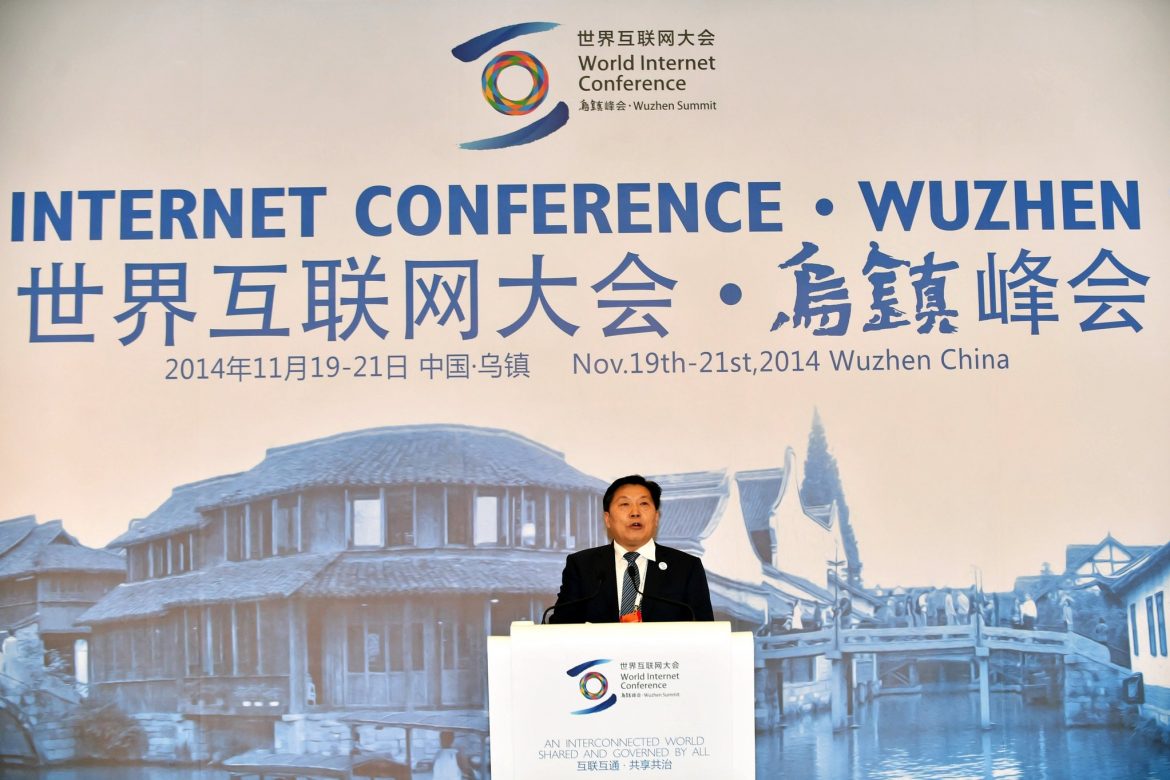This material belongs to: The New York Times.
The former Chinese official in charge of internet censorship, who hobnobbed with top executives from Facebook, Apple and Amazon and flatly denied that his government engaged in censorship, has been put under investigation by the Communist Party’s anti-corruption agency, state media reported on Tuesday.
The downfall of the censorship official, Lu Wei, was a long time coming. He once held a cluster of titles that gave him formidable influence over internet policy. But he was removed from many posts last year, suggesting that his career was under a cloud.
The Chinese Communist Party’s anti-corruption watchdog, the Central Commission for Discipline Inspection, signaled on Tuesday that Mr. Lu had been detained and was under investigation for corruption. He was suspected of “grave violations of discipline” — a euphemism covering graft, bribetaking and other abuses of power — the commission said on its website. It did not give any details of the charges against him.
Mr. Lu is the most prominent Chinese official toppled over allegations of abuse of power since Xi Jinping started his second, five-year term as Communist Party leader at a congress last month. In his first term, Mr. Xi began a ferocious campaign against corruption and disloyalty that brought down dozens of senior officials. Mr. Lu’s downfall showed that drive against graft will continue into Mr. Xi’s second term as party leader and president, the Discipline Inspection Commission said in a comment on its website.
“Lu Wei being put under investigation by the organization is the best proof of this determination and drive,” said the comment.
Once, though, Mr. Lu, 57, seemed to swagger with confidence as the official directed by Mr. Xi to tighten the Communist Party’s stranglehold over the internet.
After his appointment to run the Cyberspace Administration of China in 2014, Mr. Lu became an outspoken and intimidating gatekeeper of China’s internet. With his speeches and flamboyant dressing down of technology companies, he became an emblem of China’s increasingly unapologetic internet controls.
He chided American internet companies. Yet while visiting the United States, he was welcomed by powerful technology executives, including Tim Cook of Apple and Jeff Bezos of Amazon. At Facebook headquarters, Mark Zuckerberg showed Mr. Li his copy of a book of Mr. Xi’s speeches.
In 2014, when asked why foreign social media sites such as Facebook were blocked in China, Mr. Lu denied any knowledge of the practice.
“I have never used any of these websites so I don’t know if they have been shut down,” he said. “Your website is on your home soil. How can I go over to your home and shut it down?”
The next year, Mr. Lu denied that China engaged in internet censorship.
“It is a misuse of words if you say ‘content censorship,’” Mr. Lu said. “But no censorship does not mean there is no management.”
To quell what was perceived as a freewheeling social media, Mr. Lu went after some of the country’s biggest internet personalities. At private dinners he threatened them, and on national television he scolded them. He also limited the functions and purged many of their accounts.
Yet his high profile was also a liability.
In China, government officials are generally dull and predictable, and Mr. Lu stood out, and often raised eyebrows. Even as his star was rising, rumors swirled about his possible fall from grace. At the World Internet Conference he helped create, he could be seen smoking cigars with a Cuban telecom official and power-walking in sweats for exercise in the morning.
Still, he showed an impressive creativity at times. As head of the Cyberspace Administration of China, he asked the songwriter of the Beijing Olympic anthem to write a rousing choral number for his agency. In the chorus, employees warbled about China as “an internet superpower.”
The announcement of the investigation could help clear the air ahead of the World Internet Conference, scheduled for two weeks from now in Wuzhen, a canal town in eastern China. Presented as a sort of Davos of the internet, the meeting was conceived as a way to show off China’s new influence over the technology industry.
Analysts said that despite the public strutting of Mr. Lu, he had difficulty turning the Cyberspace Administration into a powerful regulator. Created in 2014, the agency was tasked with managing an internet and technology sector already overseen by several ministries as well as China’s security organizations and the military.
Mr. Lu will be succeeded by Xu Lin, who worked directly under Mr. Xi when he was briefly party secretary of Shanghai in 2007.
 info@anticorr.media
info@anticorr.media

